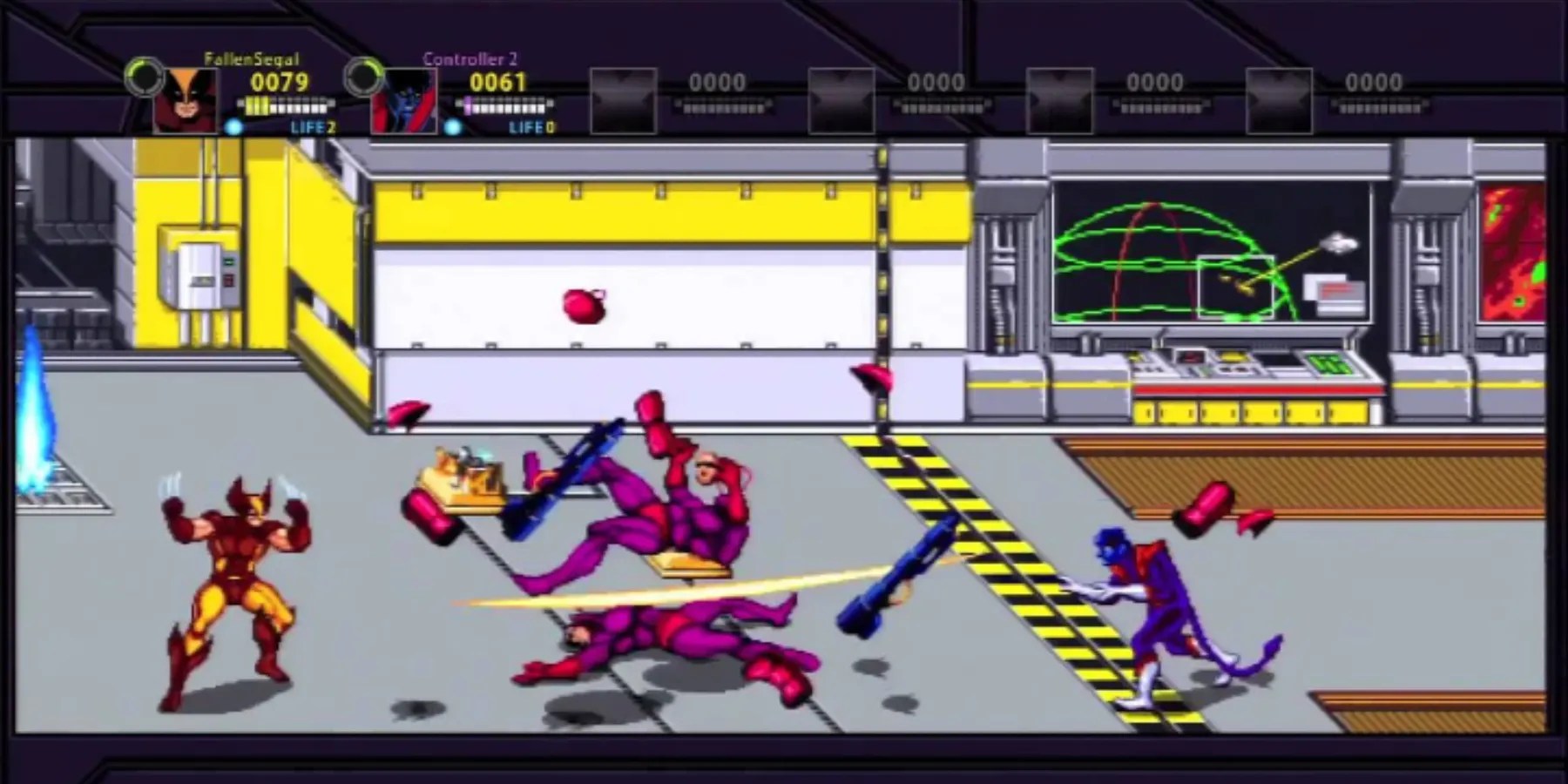Often cited as the best superhero video game series of all time, theBatman: Arkhamgames set a precedent for a new standard of hero-based gaming. The impact of these games was so strong that almost every superhero game released afterBatman: Arkham Citywas compared to it, as these were games that seemed to truly understand the source material. Although theBatman: Arkhamseries is technically finished (except for future games set in the same universe), the last fullArkhamconsole game,Batman: Arkham Knight,was considered by many to be the perfect video game adaptation of a superhero comic arc.
Batman’s status as a superhero is somewhat complicated by the fact he has no actual powers, but theBatman: Arkhamgames emphasize Batman’s gadgets and technologyto make the player really feel like the caped crusader. The combat in these games is visceral and smooth, but like many comic books, the emphasis is not on verisimilitude, but rather on creating a hero who encounters challenges but ultimately overcomes them due to his heroic qualities. As such, Batman beats leagues of baddies into unconsciousness, but as the comic book and film lore has come to establish, the dark knight never kills.

RELATED:Most Memorable Moments in the Batman: Arkham Series
The History of Superhero Video Games
None of that is to say theBatman: Arkhamgames weren’t influenced by the long history of superhero video games that came before them. In the 1980s, when gaming was still in its infancy as a form of popular entertainment, reading comic books and playing video games were two hobbies that went hand in hand.Superheroes were easily adapted in video games, wherein players could have super strength and fly without the huge special effects budget that live-action would cost.
Video games first emerged in the US in arcades, and so some of theearliest superhero games are side-scrolling arcade games. The big emphasis in the majority of these games is combat, either between two superheroes or superhero versus villain/the villain’s lackeys. It made sense, and video games offered comic book fans a chance to finally answer some of their most pressing questions, such as who would win in a fight between Batman and Superman.

The superhero genre in video games continued fairly strongly in the move from the arcade to gaming at home. Console games largely kept much of the same format as side-scrolling adventure or fighting games. Over the next few decades, the superhero genre in video games remained largely stagnant in terms of form. Certainly, there were a ton offun superhero games released during the 1990sand early 2000s, but they mostly follow the same generic blueprint.
RELATED:Why Harley Quinn Deserves Her Own Video Game
What the Batman: Arkham Games Did Differently
During the aforementioned arcade and early console era of gaming, Batman games were not uncommon. A number of factors influencethe success of theBatman: Arkhamgamesin particular, but, very broadly, Batman games before them had somewhat failed to capture the scope of Batman’s unique abilities. Batman’s emergence in comic books was inDetective Comics,and that is because Batman’s most defining trait is that he can funnel his money into creating the highest spec investigative and combat tools possible. Thus, side-scrolling or fighting games don’t necessarily suit Batman.
A lot of the more successful Batman games around this time tookmajor cues fromBatman: The Animated Seriesand other superhero cartoons. These cartoons, more so than gaming and potentially more than live-action adaptations, kept superheroes relevant through the 1990s. However, a key event occurs before the release ofBatman: Arkham Asylumthat transformed Batman/comic book adaptations, which is the release of Christopher Nolan’sBatman Begins.Nolan’s film series garnered critical acclaim and marked a changing public attitude toward superheroes, which had previously been thought of as goofy adventures of men in tights and underwear.
Only a year after Christopher Nolan’s film brought gravitas to the superhero genre,Batman: Arkham Asylumwas released. One of the most important things these games did was combine what people loved about the animated shows and comics with some of the blockbuster glamour films like Nolan’s had depicted. WhileNolan had created renewed interest in Batman, theArkhamgames are sure to acknowledge the character’s roots in comics and animated tv shows. Having voice actors fromBatman: The Animated Seriesreturn to voice their characters once again in these games was a major benefit in achieving this.
So, theBatman: Arkhamseries had mass appeal, but the actual game still had to follow through. The games would not have achieved the success they did if it was not for the smooth blend of beat ‘em up inspired combat and high-tech detective work, which made theArkhamtitles good games in their own right, outside of the Batman legacy. The gameplay was engaging and thanks to advancing gaming technology, theArkhamgames allowed players to fully explorean immersive Arkham Asylum, and later Gotham City. The batmobile of these games bears resemblance to the one in Nolan’s films (a somewhat controversial design), but long-time Batman fans were definitely happy to have a chance to drive the batmobile themselves.
It is not just that theBatman: Arkhamgames had solid gameplay and an apt release date, but these games showed an understanding of the history of Batman that solidified their appeal. As superhero games, they tapped directly into what makes Batman unique and appealing as a caped crusader as well as what makes his adversaries so iconic. TheSpider-Man games have had a similar trajectory, focusing on the superhero’s unique abilities and appeal. Notably though, the gameplay and open city ofMiles Moraleshas been compared to theBatman: Arkhamseries, further elucidating this series’ importance to superhero games more broadly. All of the elements that these games were able to successfully combine made the franchise stand out from previous Batman releases, and in turn established a new standard for superhero games going forward.
MORE:Batman: Arkham - The Fate of Every Major Villain in the Franchise